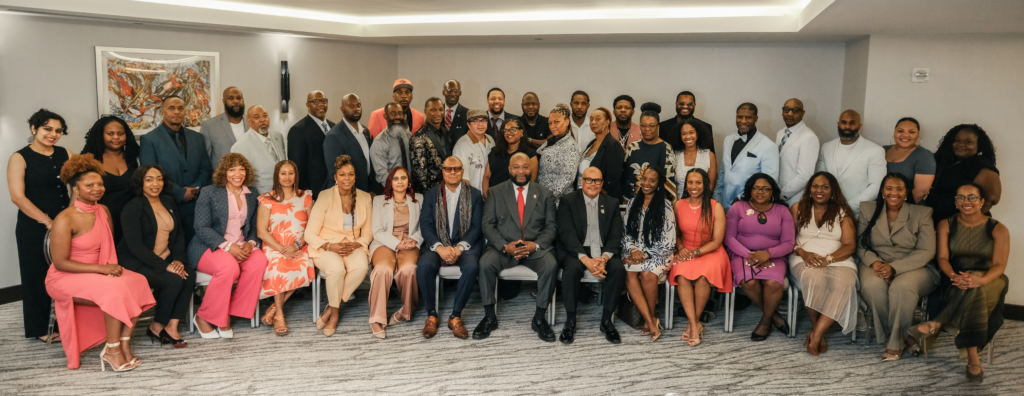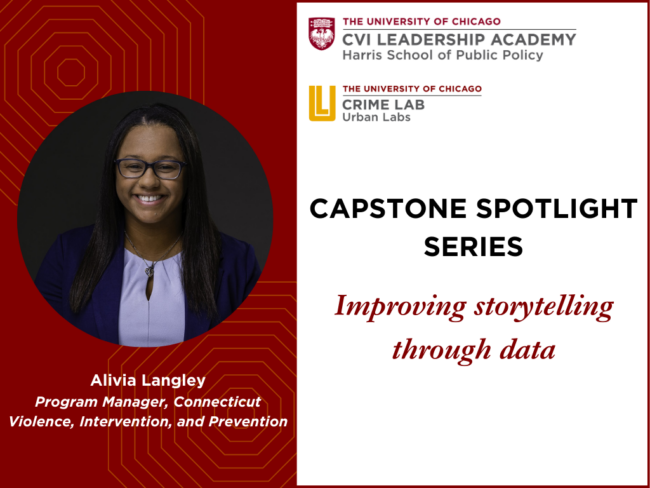The Alumni Dispatch: How CVILA Alumni are Shaping Policy, Practice, and Narrative
Community Violence Intervention Leadership Academy (CVILA) Program Managers Alesisia Cobb and Heather Bland sat down with alumni DeVita Briscoe from Seattle, WA and Nikesha Tilton from Selma, AL to discuss the progress of their capstone projects, their evolving leadership roles, and the systemic changes they’re pushing forward in their cities and states.

DeVita Briscoe is the Gun Violence Prevention Liaison for the Office of Mayor Bruce Harrell (Seattle, WA) and Nikesha Tilton is the Director of Training at the Selma Center for Nonviolence, Truth & Reconciliation (Selma, AL).
This interview has been lightly edited for clarity and length.
Since your graduation from the CVILA, how has your capstone progressed?
DeVita: My capstone focused on establishing an Office of Violence Prevention in Seattle. Working within government has required a different strategy than leading from community. Currently, I’m helping oversee $16 million in funding and ensuring resources strengthen Black-led providers while promoting accountability. CVILA gave me the framework and national network to navigate this work. My goal is to build an office that centers equity while serving as a model for the CVI field.
Nikesha: My capstone began in Selma but quickly grew to a statewide initiative. The biggest progress has been breaking down silos—bringing organizations, public safety partners, and community members together around shared definitions and goals. Something as simple as aligning on what counts as a homicide revealed how necessary this work is. CVI isn’t about competition; it’s about collaboration that makes communities safer.
How are you building relationships with law enforcement while advancing your projects?
Nikesha: Relationships come first. Through consistent conversations and trust-building, law enforcement has started to see community-based organizations as allies in keeping residents safe. Now, officers are reaching out to connect victims with services, which is a powerful step toward stronger coordination.
DeVita: In Seattle, the appointment of a new police chief who understands CVI has created momentum. My focus is on building a collaborative approach where CVI practitioners and law enforcement operate with mutual respect as first responders tackling violence from different angles. Expanding that collaboration across both city and county levels is key to making our work sustainable.
How do you define success?
DeVita: Success means creating an office that professionalizes CVI practitioners, uplifts community leadership, and establishes structures that last—while showing the rest of the country what’s possible. To me, it’s not just about launching an office; it’s about building something that can stand the test of time, shift how cities view community safety, and inspire others to adapt similar models nationwide.
Nikesha: Success is getting Alabama aligned statewide—common definitions, common systems, and a shared urgency. The goal isn’t just collecting data but using it to connect the dots: domestic violence, retaliation, trafficking, robberies. Violence is complex, and success means making sure every sector—law enforcement, community, schools, healthcare—has the same understanding and can act in harmony. Long term, I want Alabama to serve as proof that even in places where CVI is new, statewide collaboration can flourish and save lives.
Both alumni embody the CVILA mission: transforming frontline insights into systemic change. From Seattle to Selma, their journeys remind us that persistence, partnerships, and shared accountability are the foundation of lasting community safety.
Latest Updates
2025 CVI Leadership Academy Celebration and Graduation
The CVI Leadership Academy hosted the graduation of its third cohort and a celebration of the field in Miami, Florida.

Improving storytelling through data
Learn more about Alivia’s experience in the Community Violence Intervention Leadership Academy.

A New Way To Address Gun Violence You’ve Never Heard Of
Former Chief of the Los Angeles Police Department Charlie Beck, Crime Lab Faculty Director Jens Ludwig, and CVILA Executive Director Dr. Chico Tillmon penned this Newsweek op-ed on the importance of raising awareness about community violence interventions and how they can be used to continue the gun violence reduction trends we saw in 2023.

